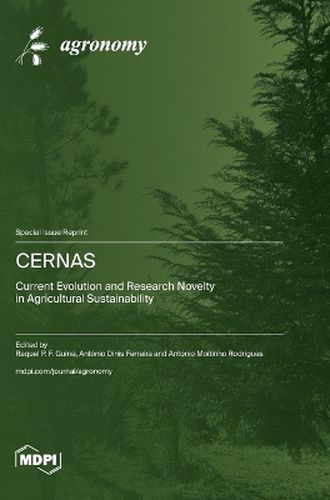Readings Newsletter
Become a Readings Member to make your shopping experience even easier.
Sign in or sign up for free!
You’re not far away from qualifying for FREE standard shipping within Australia
You’ve qualified for FREE standard shipping within Australia
The cart is loading…






This reprint addresses original studies and reviews focused on the current evolution and research novelty in agricultural sustainability.
New developments are discussed on issues related with quality of soil, natural fertilizers, or the sustainable use of land and water. Also, crop protection techniques are pivotal for sustainable food production under the challenges of the Sustainable Development Goals of the United Nations, allied to innovative weed control methodologies, as a way to reduce the utilization of pesticides. The role of precision and smart agriculture is becoming more pertinent as communication technologies improve at a rapid rate. Waste management, reuse of agro-industrial residues, extension of shelf life, and use of new technologies are methods to reduce food waste, all contributing to higher sustainability in food supply chains and leading to more rational use of natural resources. The unquestionable role of bees as pollinators and contributors to biodiversity is adjacent to characterizing beekeeping activities, which in turn contributes, together with the valorization of endemic varieties of plant foods, to the development of local communities. Finally, short circuits and local food markets have a decisive role in the preservation and enhancement of rural economies.
$9.00 standard shipping within Australia
FREE standard shipping within Australia for orders over $100.00
Express & International shipping calculated at checkout
This reprint addresses original studies and reviews focused on the current evolution and research novelty in agricultural sustainability.
New developments are discussed on issues related with quality of soil, natural fertilizers, or the sustainable use of land and water. Also, crop protection techniques are pivotal for sustainable food production under the challenges of the Sustainable Development Goals of the United Nations, allied to innovative weed control methodologies, as a way to reduce the utilization of pesticides. The role of precision and smart agriculture is becoming more pertinent as communication technologies improve at a rapid rate. Waste management, reuse of agro-industrial residues, extension of shelf life, and use of new technologies are methods to reduce food waste, all contributing to higher sustainability in food supply chains and leading to more rational use of natural resources. The unquestionable role of bees as pollinators and contributors to biodiversity is adjacent to characterizing beekeeping activities, which in turn contributes, together with the valorization of endemic varieties of plant foods, to the development of local communities. Finally, short circuits and local food markets have a decisive role in the preservation and enhancement of rural economies.